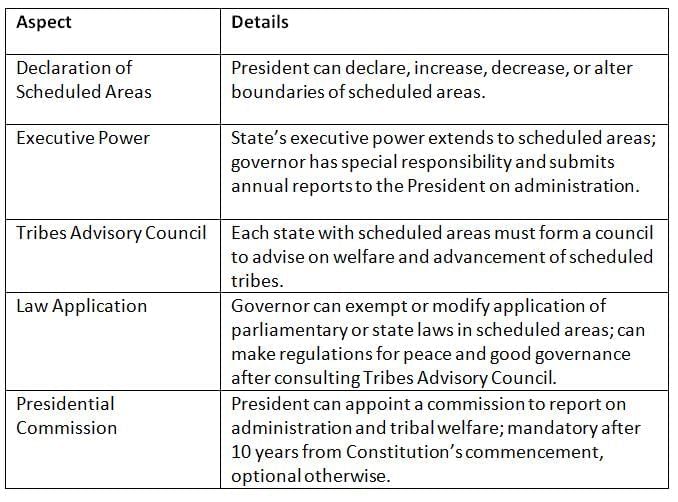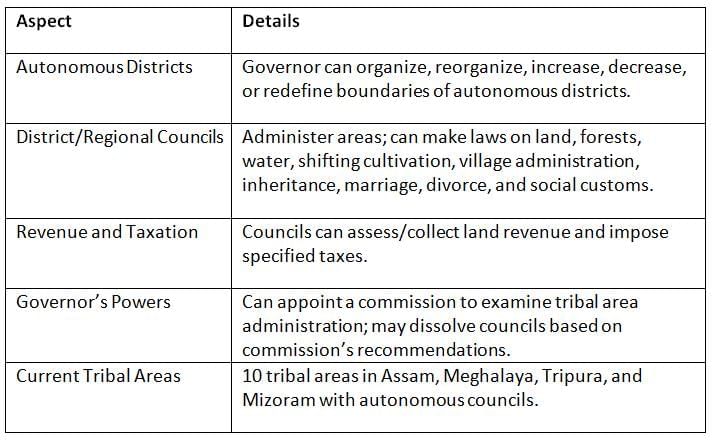Cheat Sheet: Scheduled and Tribal Areas | Indian Polity for UPSC CSE PDF Download
| Table of contents |

|
| Introduction |

|
| Administration of Scheduled Areas (Fifth Schedule) |

|
| Administration of Tribal Areas (Sixth Schedule) |

|
| Chronology for Quick Revision |

|
Introduction
This chapter explains the special systems for governing scheduled and tribal areas in India, as outlined in Article 244 of the Constitution. It covers the Fifth Schedule for scheduled areas and the Sixth Schedule for tribal areas in four northeastern states. The focus is on how these provisions ensure the welfare and autonomy of tribal communities while balancing state and central roles.
Administration of Scheduled Areas (Fifth Schedule)
The Fifth Schedule provides a framework for governing scheduled areas in states (except Assam, Meghalaya, Tripura, and Mizoram) to protect and promote the welfare of scheduled tribes through special administrative measures.
Key Points: The Fifth Schedule empowers the President and governor to manage scheduled areas, ensuring tribal welfare through advisory councils, customized laws, and periodic reviews.
Administration of Tribal Areas (Sixth Schedule)
The Sixth Schedule grants significant autonomy to tribal areas in Assam, Meghalaya, Tripura, and Mizoram, recognizing their unique cultural identities. It establishes autonomous councils to manage local governance and protect tribal interests.
Key Points: The Sixth Schedule provides tribal areas in the Northeast with autonomous councils that have legislative and taxation powers, preserving cultural identity and local governance.
Chronology for Quick Revision

Key Points: The Fifth and Sixth Schedules were introduced in 1950, with provisions for periodic review to ensure effective administration of tribal areas.
Conclusion
This chapter highlights India’s commitment to protecting tribal communities through special governance systems under Article 244. The Fifth Schedule ensures tailored administration for scheduled areas with a focus on tribal welfare, while the Sixth Schedule grants significant autonomy to tribal areas in four northeastern states, preserving their cultural uniqueness. These provisions balance central oversight with local self-governance, making them vital for inclusive development and tribal empowerment.
|
142 videos|779 docs|202 tests
|
FAQs on Cheat Sheet: Scheduled and Tribal Areas - Indian Polity for UPSC CSE
| 1. What is the Fifth Schedule of the Indian Constitution and its significance in the administration of Scheduled Areas? |  |
| 2. How does the Sixth Schedule differ from the Fifth Schedule in the context of tribal area administration? |  |
| 3. What are the key provisions under the Fifth Schedule for the protection of tribal rights? |  |
| 4. Can you explain the role of the Governor in the administration of Scheduled Areas under the Fifth Schedule? |  |
| 5. What is the importance of the Autonomous District Councils established under the Sixth Schedule? |  |




















